How Much Can You Sell Black Walnuts For? (Max Your Profits)
Black walnuts are not only tasty, but they can also be quite lucrative when it comes to making some extra cash. If you are looking to turn a profit by collecting and selling these nuts, this article will explain how much you can sell them for and provide some tips on how to maximize your revenue.
You can sell black walnuts for around $8 to $10 per pound. If marketed as organic or locally sourced, you may be able to sell them for around $15 to $20 per pound. Value-added products like black walnut oil, baked goods, or other specialty items can also command higher prices.
However, note that the price you receive for selling black walnuts can fluctuate depending on factors such as nut quality and market demand. As you read further, we'll discuss how each of these factors affects the price per pound.
It's crucial to also understand how much you can sell black walnuts for, as this knowledge will guide your pricing strategy and help maximize the profits of your farming venture, when you're learning how to start a walnut farm from scratch.
Summary
- Processed black walnuts typically command a higher price range, averaging between $15 and $20 per pound, due to the added value of the processing, making them more convenient for consumers to use in recipes or eat as a snack.
- Organic black walnuts can be sold at a premium price ($20 to $25 per pound), reflecting the investment and dedication required for organic farming practices.
- To increase profits from selling black walnuts, consider creating value-added products such as black walnut oil, flavored nut snacks, and baking ingredients, as these can be sold at a premium price compared to raw walnuts.
- Choose between local and online markets to sell black walnuts, considering factors such as personalized customer interactions, access to a wider customer base, and operational costs for each option.
- Trees in areas with higher demand, favorable growing conditions, and abundant sunlight may produce higher-quality nuts, leading to higher prices.
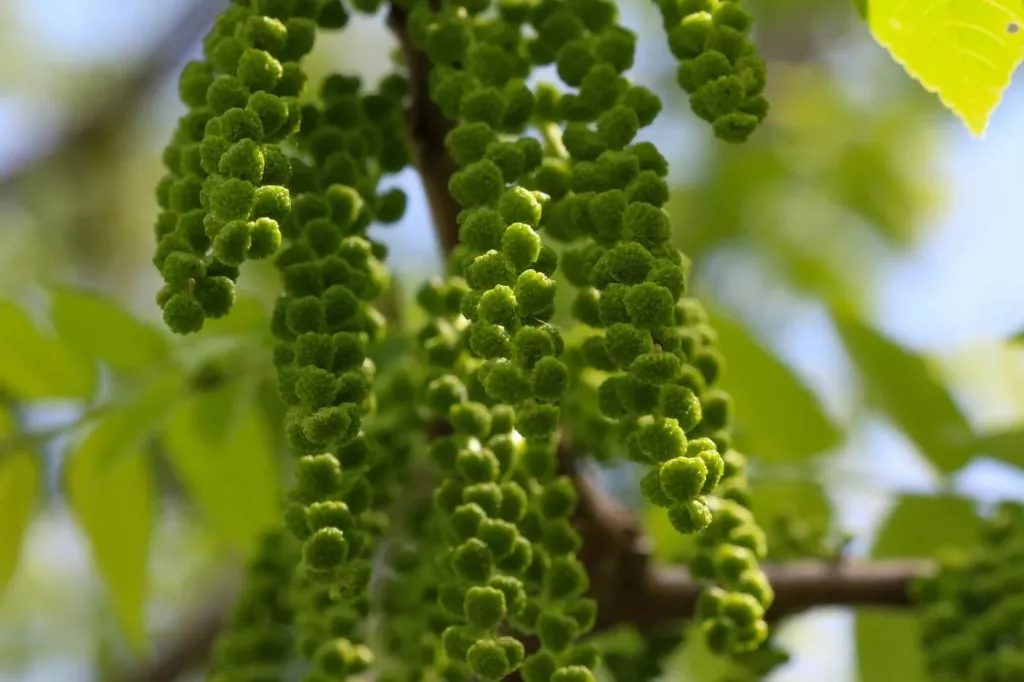
On this page:
Pricing Strategies When Selling Black Walnuts
The table below shows the different pricing for selling black walnut products:
| Black Walnut Product | Estimated Price Range |
|---|---|
| Fresh black walnuts | $8 - $10 per pound |
| Processed black walnut (e.g. shelled, chopped, etc.) | $15 - $20 per pound |
| Organic black walnuts | $20 - $25 per pound |
| Black walnut oil | $20 - $30 per 8 oz bottle |
| Baked goods made with black walnuts (e.g. cookies, bread) | $10 - $15 per item |
The price of black walnuts can vary depending on the quality, quantity, and market demand. However, as a general guideline, you can sell black walnuts for around $8 to $10 per pound. A 50-foot black walnut tree has been known to have an estimated nut production value of $200 to $500 per year.
In some areas, you may be able to sell them for as much as $15 to $20 per pound, especially if they are organic or locally sourced.
Additionally, selling value-added products such as black walnut oil or baked goods made with black walnuts can also help maximize your profits.
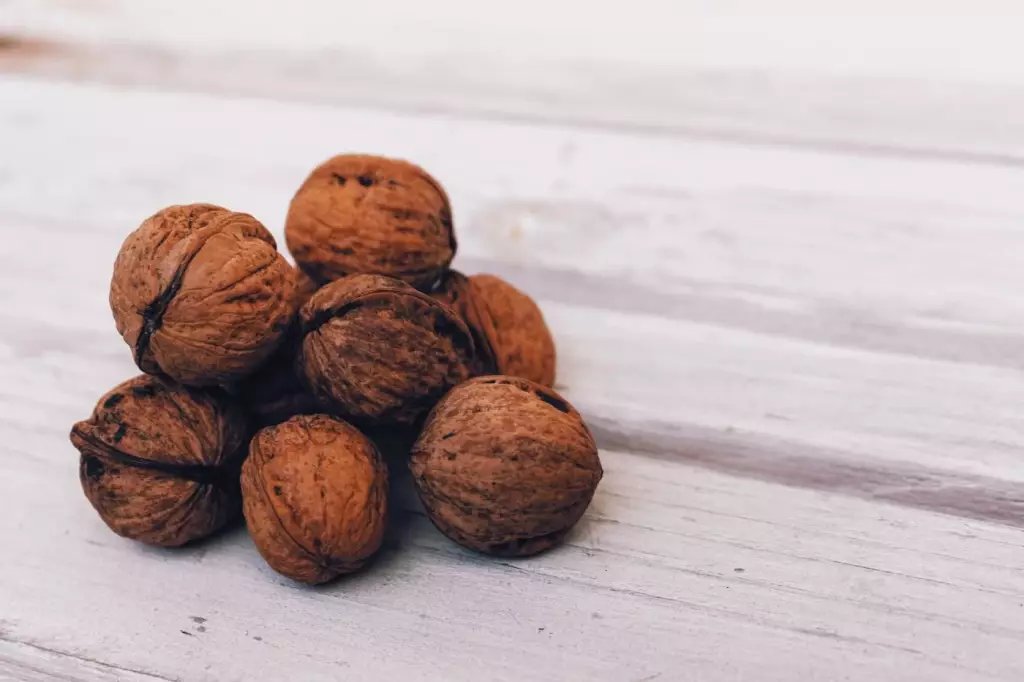
Average price for selling fresh black walnuts
Freshly harvested black walnuts can typically be sold for around $8 to $10 per pound. A single walnut tree is known to yield 50-80 pounds of unshelled nuts per year.
In-shell black walnuts are sold for $1.40 - $1.60 per pound. They are sought after for their unique flavor and can be sold to individuals, farmers' markets, or specialty food stores.
High-quality nuts that are free from blemishes and have a rich, distinct flavor will generally command a higher price compared to lower-quality nuts.
Larger nuts are often preferred by consumers and may be priced higher than smaller ones. Additionally, larger nuts can yield more edible meat, which adds to their desirability and market value.
When black walnuts are in high demand but limited supply, the price tends to increase. Conversely, during periods of abundant supply, the price may decrease due to competition and surplus inventory.
Average price for selling processed black walnuts
When black walnuts are processed, such as being shelled or chopped, they undergo additional labor and handling, which adds value to the product. This extra step makes the nuts more convenient for consumers to use in recipes or eat as a snack, justifying the higher price point.
Processed black walnuts typically command a higher price range, averaging between $15 to $20 per pound. The exact pricing can vary based on factors such as the quality of the processing, market demand, and the specific type of processing involved.
For example, finely chopped or ground black walnuts may be priced at the higher end of the range due to the added convenience they offer in cooking and baking.
Consumers are often willing to pay a premium for processed black walnuts due to the time and effort saved in handling the nuts themselves.
Additionally, the processing can ensure that the nuts are uniform in size and free from shells, enhancing their appeal to buyers. Therefore, sellers can maximize their profits by offering high-quality processed black walnuts at a competitive price point that reflects the added value of the processing.
Average price for selling organic black walnuts
Organic black walnuts are cultivated without the use of synthetic pesticides, herbicides, or fertilizers. As a result, they can be sold at a premium price, typically ranging from $20 to $25 per pound.
The higher price of these products reflects the investment and dedication required for organic farming practices. Health-conscious consumers, environmentally conscious individuals, and those seeking natural, chemical-free products are willing to pay more for organic options due to their perceived health benefits and environmental sustainability.
The premium price for organic black walnuts also reflects the certification and compliance with organic standards, which involves rigorous monitoring and adherence to strict regulations.
Sellers of organic black walnuts can cater to a niche market of consumers who prioritize organic, sustainable, and environmentally friendly products.
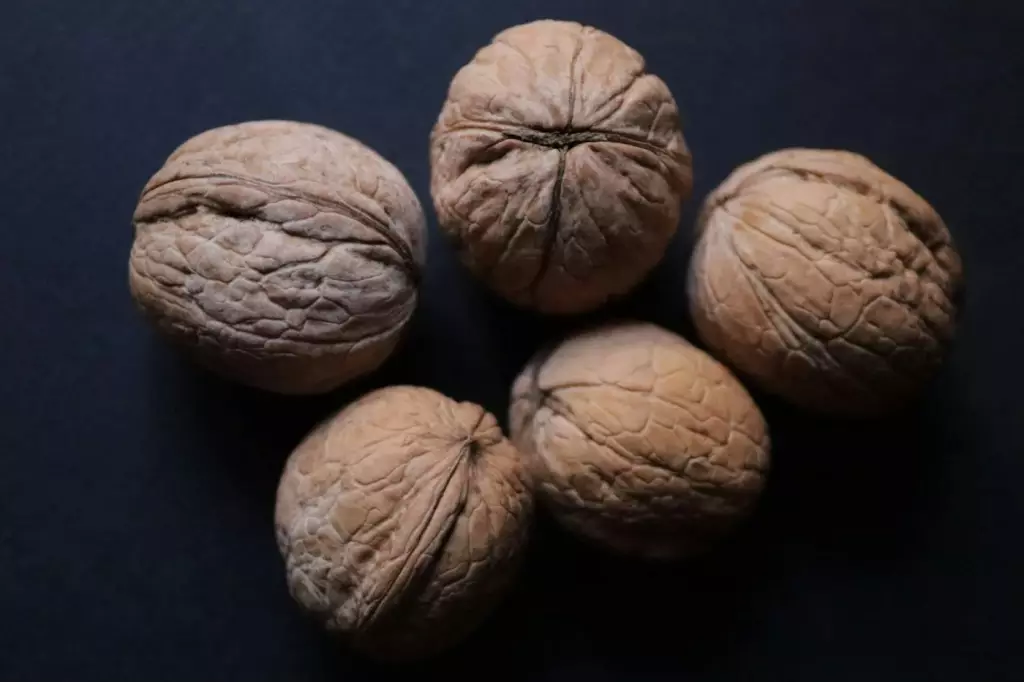
Average price for selling black walnut oil
Black walnut oil is a specialty product that is derived from the cold-pressing of black walnuts, resulting in a rich, flavorful oil with a distinct nutty taste.
This gourmet oil is highly valued for its unique flavor profile and versatile culinary applications. Due to its specialty nature and the labor-intensive process of extraction, black walnut oil can be sold at a premium price, typically ranging from $20 to $30 per 8-ounce bottle.
The premium pricing of black walnut oil reflects its status as a high-quality, artisanal product that appeals to discerning consumers seeking unique and flavorful culinary ingredients.
The oil is commonly used in cooking, salad dressings, and as a finishing oil to enhance the taste of various dishes. Its rich, nutty flavor adds depth and complexity to both savory and sweet recipes, making it a sought-after ingredient among chefs and home cooks alike.
Consumers who appreciate gourmet and specialty oils are often willing to pay a higher price for black walnut oil due to its distinctive taste and its ability to elevate the flavor profile of dishes.
Additionally, the labor and resources required for the cold-pressing process contribute to the higher cost of production, further justifying the premium pricing of the oil.
Sellers of black walnut oil can position it as a gourmet, high-quality product and emphasize its culinary versatility to attract consumers looking for unique and flavorful oils.
Average price for selling baked goods made with black walnuts
Baked goods such as cookies, bread, and pastries that incorporate black walnuts can be sold for a premium due to the added value of the ingredients.
Depending on the item, baked goods made with black walnuts can be priced at $10 to $15 per item. The rich, distinctive flavor of black walnuts enhances the appeal of these baked goods, making them desirable to consumers.
Baked goods made with black walnuts offer a unique and indulgent flavor profile, which contributes to their premium pricing. Depending on the specific item, such as cookies, bread, or pastries, baked goods incorporating black walnuts can typically be priced in the range of $10 to $15 per item.
The premium pricing of these baked goods is justified by the added value that the inclusion of black walnuts brings to the products. The rich, distinctive flavor and texture of black walnuts enhance the appeal of the baked goods, making them desirable to consumers seeking unique and flavorful treats.
Maximizing Profits From Black Walnut Sales
In this section, we'll discuss the strategies landowners can implement to maximize their returns from black walnut trees and ensure a sustainable source of income for years to come:
Consider creating value-added products
To increase your profits from selling black walnuts, perhaps consider creating value-added products. Some examples of value-added products include black walnut oil, flavored nut snacks, and baking ingredients like crushed walnuts.
By producing these products, you can charge a premium price compared to selling the walnuts in their raw form. You can also develop pricing strategies such as offering bulk discounts or bundled product deals to increase sales volume.
Research local market prices
tart by visiting farmer's markets in your area, as well as any local grocery stores that sell black walnuts. Take note of the prices per pound for raw and processed products.
Try to analyze their packaging and presentation, as this can influence customers' perception of your product's value. Additionally, you can join online forums, where other black walnut collectors and sellers share their experiences and insights.
This will give you a better understanding of your competition and help you determine the best price point for your products.
Set competitive prices for black walnuts
After gathering market data, you can use this information to set competitive prices for your black walnuts. You need to strike a balance between pricing your products too low, causing a potential loss in profit, and too high, which may discourage potential customers.
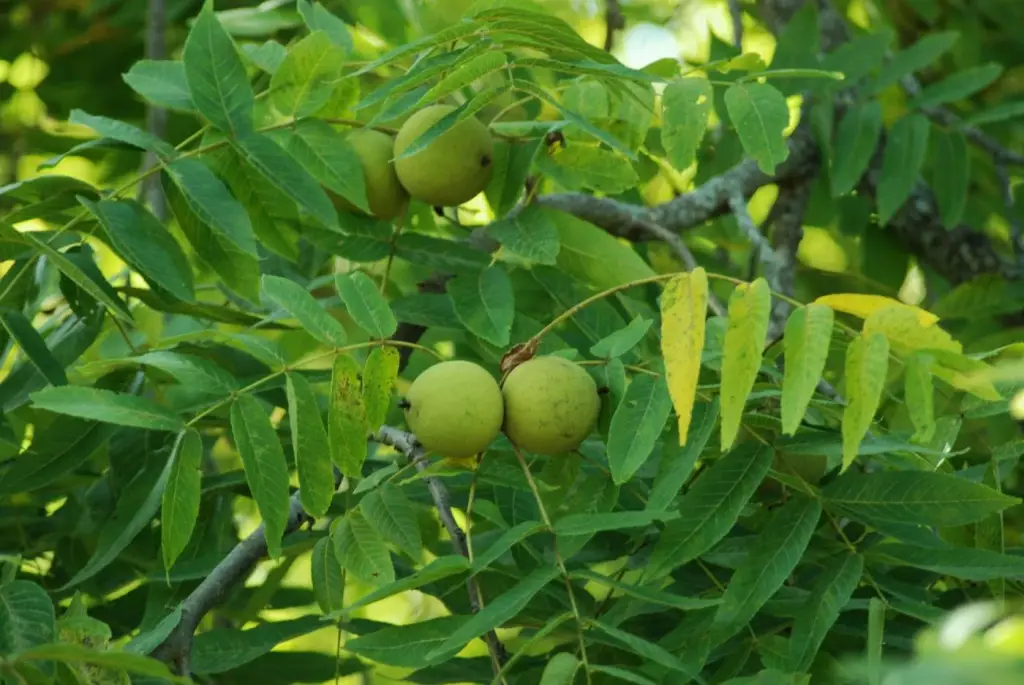
Ideally, your prices should be in line with—or slightly below—your competitors to establish yourself in the market. Remember to account for factors such as packaging, shipping, and any additional processing costs when setting your prices.
Invest in quality packaging and presentation for higher sales
Attractive packaging and presentation can help you sell your black walnuts for a higher profit. Try investing in quality packaging materials to protect the nuts and maintain their freshness.
Furthermore, you might want to consider adding clear labels with information about the product, including the variety of the walnut, its origin, and any certifications it may have. This transparency can help build trust with buyers and improve your sales.
Choose your selling platform
You have two main options when it comes to where to sell your black walnuts: local and online markets. The table below shows the pros and cons of both options:
| Aspect | Local Markets | Online Markets |
|---|---|---|
| Pros | - Personalized customer interactions | - Access to a wider customer base |
| - Building strong local relationships | - Lower overhead costs | |
| - Premium pricing opportunities | - Ability to reach national and international customers | |
| - Immediate sales opportunities at events | - Convenience for customers | |
| Cons | - Limited reach beyond local area | - Higher competition from other online sellers |
| - Limited selling hours (e.g., farmers' markets) | - Shipping and logistics challenges | |
| - Higher operational costs for physical retail | - Potential for increased returns due to customer returns and refunds | |
| - Seasonal limitations for outdoor markets | - Difficulty in providing personalized customer service | |
| - Dependence on foot traffic and local demand | - Building trust and reputation in a crowded online marketplace |
Local markets, such as farmers' markets or specialty stores, are great places to connect with customers who appreciate the unique qualities of black walnuts. Alternatively, you can sell online through platforms like Etsy, eBay, or your website.
Factors Affecting Black Walnut Prices
Black walnut trees are highly valued for their wood, which is prized for its strength, durability, and attractive grain. The price of black walnuts is influenced by several factors, including the following:
The quality of the nuts
Higher quality nuts, such as those with a larger size, better flavor, and a higher oil content, are typically more desirable and can command higher prices in the market. In contrast, lower-quality nuts may be less valuable and sell for lower prices.
Factors that can affect the quality of black walnuts include the growing conditions, such as soil quality and climate, as well as the care taken during harvesting and processing. Nuts that are properly handled and stored are more likely to maintain their quality and command higher prices.
Additionally, the demand for black walnuts can also influence their prices. If there is high demand for high-quality nuts, prices may increase. Conversely, if there is an oversupply of lower-quality nuts, prices may decrease.
Market demand and trends also determine the prices of black walnuts
The demand for black walnuts is influenced by various factors such as consumer preferences, dietary trends, and the availability of alternative products.
If there is a growing trend towards healthy and natural foods, the demand for black walnuts, which are considered to be a nutritious and natural snack, may increase.
On the other hand, if there is a shift towards alternative snacks or if consumer preferences change, the demand for black walnuts may decrease.
As with dietary trends, if there is a surge in the popularity of plant-based diets or if there is increased awareness about the health benefits of incorporating nuts into one's diet, the demand for black walnuts may rise.
Conversely, if there is a decline in the popularity of nuts or if there are negative health perceptions associated with consuming nuts, the demand for black walnuts may decrease.
Additionally, if there are other types of nuts or snack options that are more readily available or more affordable, the demand for black walnuts may be affected.
Similarly, if there are shortages or limited availability of black walnuts due to factors such as weather conditions or crop failures, the demand for black walnuts may increase, leading to higher prices.
Harvesting and processing costs
The first step in harvesting black walnuts is the labor involved in gathering the nuts. This can include the cost of hiring workers to collect the nuts from the ground or using machinery to shake the nuts from the trees.
Labor costs also include the time and effort required to sort and clean the nuts after they have been harvested.
Equipment costs are another factor in the overall cost of harvesting black walnuts. This includes the cost of machinery such as nut harvesters, shellers, and cleaning equipment.
Additionally, the cost of maintaining and repairing this equipment must also be factored into the overall cost.
Transportation costs are incurred when the harvested nuts need to be transported from the collection site to the processing facility. This can include the cost of fuel, vehicle maintenance, and labor for transporting the nuts.
Once the nuts have been harvested and transported, they need to be processed. This involves cracking the shells to extract the nutmeat, cleaning and sorting the nutmeat, and packaging the final product. For a more detailed breakdown of the cost of growing black walnuts, you can try reading this article.
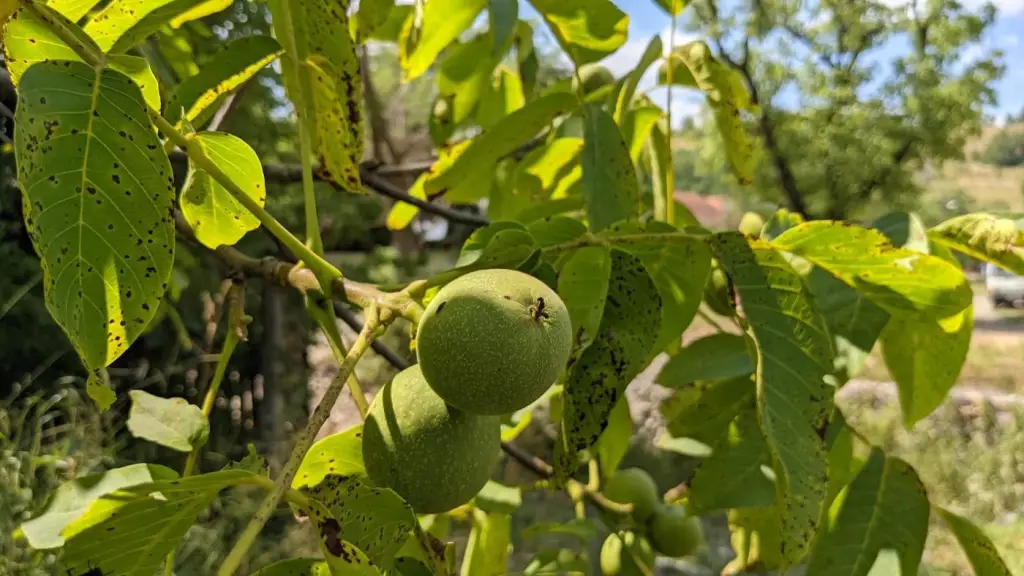
While you're considering how much you can sell black walnuts for, it's equally important to evaluate the profitability of Chandler walnuts per acre, as this comparison will guide your decision on which walnut variety might be more financially beneficial for your farm.
The location of the black walnut trees
If the trees are located in an area with favorable growing conditions and abundant sunlight, the nuts produced may be of higher quality and fetch higher prices.
Additionally, if the trees are located in an area with high demand for black walnuts, the prices may also be higher due to increased competition and market demand.
Conversely, trees in less favorable growing conditions or in areas with lower demand may result in lower prices for the nuts.
While you're considering how much you can sell black walnuts for, it's equally important to evaluate the profitability of Chandler walnuts per acre, as this comparison will guide your decision on which walnut variety might be more financially beneficial for your farm.
Certification and sustainability practices
With growing awareness and demand for sustainably sourced products, having certification or sustainable harvesting practices in place can add value to black walnut trees.
This can lead to higher prices for the nuts, as consumers and businesses are often willing to pay more for products that are certified as sustainable and environmentally friendly.
On the other hand, a lack of certification or unsustainable harvesting practices may result in lower prices for the nuts, as they may be perceived as less desirable in the market.



